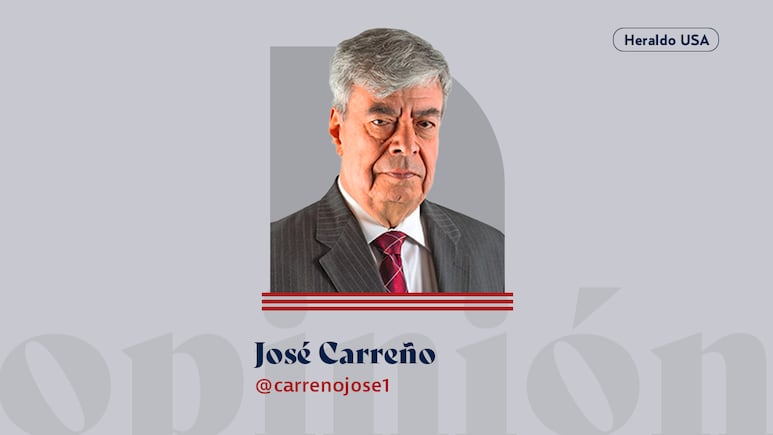FROM THE OUTSIDE | Of conspiracies and paranoia
U.S. is a nation with a paranoid political style, where myths become truths and sometimes endure even when facts contradict them

In recent years, global politics—especially in the United States—has been overshadowed by conspiracy theories.
Publicidad
The leading promoters, though not the only ones, have been political opposition groups, especially populists on both the left and right. Regardless of their place on the ideological spectrum, they all begin to face reality once they are in power.
That may explain why, when Attorney General Pamela Bondi appeared last Monday to announce that there were no signs of “foul play” in the 2019 suicide of billionaire Jeffrey Epstein—convicted of trafficking minors—it triggered an earthquake that is shaking the foundations of support for President Donald Trump, by casting doubt and raising new questions around one of the American right’s favorite conspiracy theories.
The impact of the “bombshell” has profound political consequences and in no way put an end to the speculation surrounding Epstein, who was said to have kept a “client list” or a list of friends that included some of the most prominent names in U.S. and global politics and finance, allegedly involved in orgies with underage girls.
Publicidad
Prince Andrew of the United Kingdom lost status and income as a result of his ties to Epstein’s parties, where he may have crossed paths with former President Bill Clinton and other figures loathed by the American right, but also—according to current opposition figure Elon Musk—with then-businessman Donald Trump and political strategist Steve Bannon.
Publicidad
In February, Bondi claimed she had Epstein’s “client list” on her desk. But despite the eager anticipation of right-wing influencers, the Attorney General denied the existence of such a list, rekindling not only the theories surrounding the case but also those around Epstein’s death in prison, and sparking debate over why the Trump administration is now hiding that information.
But no one stopped to ask whether the information they so desperately wanted had ever really existed—more a matter of wishful thinking than actual knowledge.
This isn’t the only case, nor is the U.S. the only country where conspiracy theories clash with reality, no matter how implausible, and sometimes even create their echo chambers.
Perhaps the United States, arguably the world’s most advanced society in terms of social media use, is especially prone to the creation of urban legends. As author Charles Pierce once said, it’s a country that is “drowning in information but starving for knowledge.”
It’s a nation with a paranoid political style, where myths become truths and sometimes endure even when facts contradict them.
Trump’s presidential campaign—and later his time in office—seemed especially willing to embrace conspiratorial narratives that helped him gain votes and build a loyal following, made up of groups ranging from creationist religious conservatives to white ultranationalists.
But now, he must face the consequences of his conspiracies.
Publicidad
Publicidad
Más Leídas | Heraldo USA
¿Lo conocías? Él es el papá de Chayanne, el suegro de América
Por Heraldo USA
Precio del dólar HOY en México: viernes 11 de julio 2025
Por Heraldo USA
Qué es la “Teoría del Loco” de Trump y cómo está cambiando el orden mundial
Por Heraldo USA
EN VIVO: Sigue minuto a minuto la conferencia matutina de Claudia Sheinbaum HOY 11 de julio
Por Heraldo USA
Publicidad
Más noticias de Estados unidos
Más noticias de México











